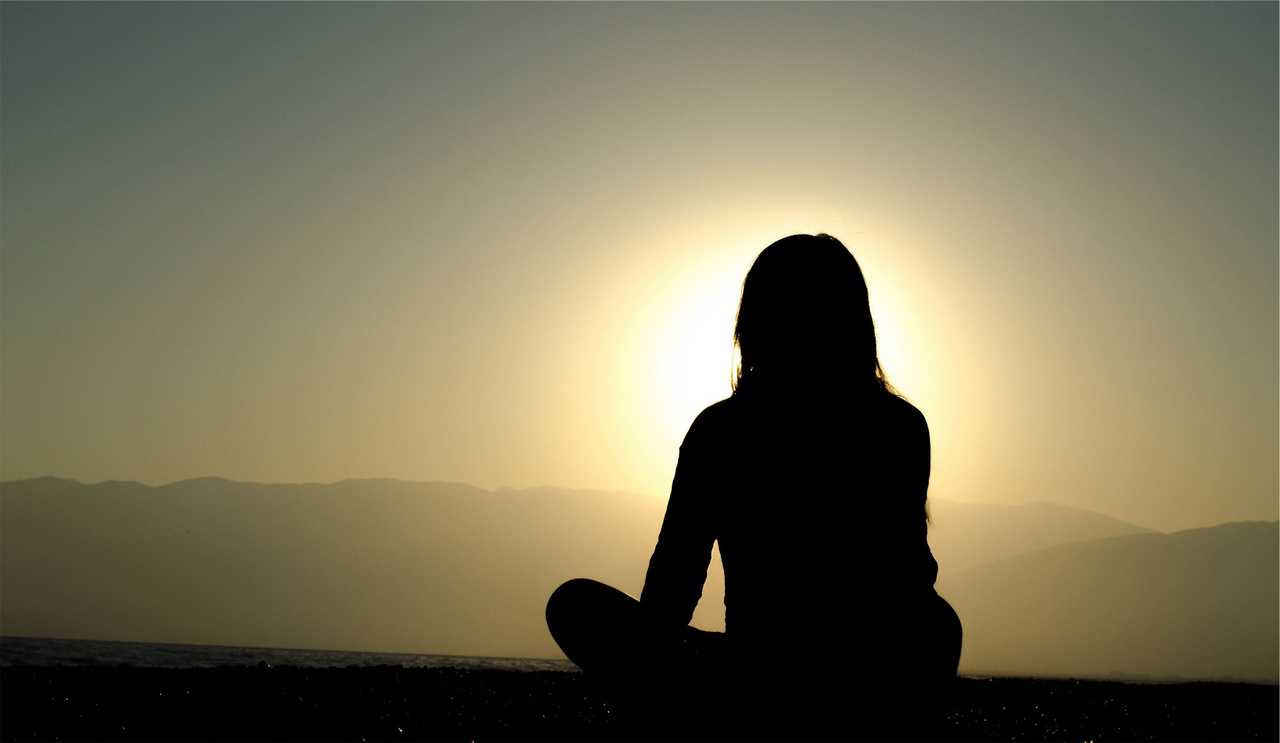Glimpsing myself

I had never been on any kind of retreat before I arrived at the Western Zen retreat at Maenllwyd in November. It was something I had been building up to for quite some time. I knew I was searching for a path, and I was increasingly convinced that this may help me to begin walking it. But I didn’t know what to expect from my time. Some 15 years before, I had done a brief Buddhist meditation course, and I had flirted with meditation on and off in the interim. But no more.
When I arrived at the centre, in the evening dark, I was immediately captivated by the place. Its simplicity, the silence of its surroundings in the hills and its lack of modern facilities, had been a strong attraction to me. It seemed a good place to strip things back. It took very little time before we were plunged into the rhythm of the week. I hadn’t realised before I arrived that the retreat was almost entirely silent: that was my first shock. It panicked me for a while, until I started asking myself what I was afraid of.
It took me about five days to work that out.
The next morning, we began at 5 AM with exercises in the yard. I had had a strange night, not sleeping well, worrying, turning things over in my head. Some turmoil was beginning. For the first morning of the retreat, I was very resistant to what was happening. I sat down to meditate, closed my eyes, and immediately felt like I had been dropped into the middle of a motorway junction at rush hour. The contents of my mind were moving so fast, and there was so much of it: I could hardly bear to look, and I had no idea what to do with it all. I hadn’t realised how out-of-control things were.
That put me in a bad mood, which seemed to get worse as the morning progressed. I told myself that the whole thing was nonsense, and nothing to do with me: the chanting and incense and the silence. I felt very tired, and I had to lie down. I thought about leaving, even though I had only just arrived.
In retrospect, I can see what was happening here: my mind was resisting examination. Since I have come back from the retreat, I have been meditating daily, and I have found this continuing to happen, though less frantically. My mind does not want its inner workings exposed. It doesn’t want the ‘reality’ it has constructed to be taken apart and examined. It seems afraid.
My resistance ended after lunch on the first day, when the communication exercises began. My question – 'who am I?' – was put to me by a succession of other retreat participants. I had five minutes to answer it, and then to ask it of them. Over five days, this exercise built up into a hugely powerful stripping-away of many things I had identified with my personality. Much that I had identified with myself turned out not to be myself at all. I wasn’t my moods. I wasn’t my achievements. I wasn’t my knowledge. I wasn’t what I had been taught by my parents or my teachers. I wasn’t my circumstances. So what was I? What was underneath?
It’s not a question I was able to answer in five days, but what I did see on this retreat was profound. I caught glimpses of something I had never seen before. The whole thing seemed to me like an intensification of a process I have been silently undertaking for years, but with no training framework: an examination of who I am, and what matters. Five days of sitting meditations, communication exercises and walks in the hills, in silence, watching my thoughts pass by like clouds, could not help but have a serious and sometimes disturbing impact on my understanding of what my mind is, and how it works.
On the last day of the retreat, I felt joyful, and lighter, physically and mentally, than I have been for years. I felt I understood a number of my self-imposed burdens. Most of all, I understood that the world and my perception of the world were not the same thing. Written down, it seems obvious; but realising it at a level that was more profound than the purely intellectual was a significant experience for me.
It would not be an exaggeration to say that I have not been the same since I returned. There has been a series of small but decisive in shifts within, which I can feel are not going to be reversed. I don’t see myself in the same way; I find myself more attentive to how my mind is working and where my moods come from and what I can begin to do with them. Slowly, clumsily – very clumsily – I’m starting to make changes in how I think and how I behave and how I understand the nature of reality. I have the WCF, and in particular the teaching of Hilary Richards on my course, to thank for that. I will certainly be back.
- Publication date:
- Modified date:
- Categories: 2013 Western Zen Retreat Reports Anonymous
-
 Western Chan Fellowship CIO
Western Chan Fellowship CIO - Link to this page
©Western Chan Fellowship CIO 1997-2026. May not be quoted for commercial purposes. Anyone wishing to quote for non-commercial purposes may seek permission from the WCF Secretary.
The articles on this website have been submitted by various authors. The views expressed do not necessarily represent the views of the Western Chan Fellowship.
Permalink: https://w-c-f.org/Q372-391
